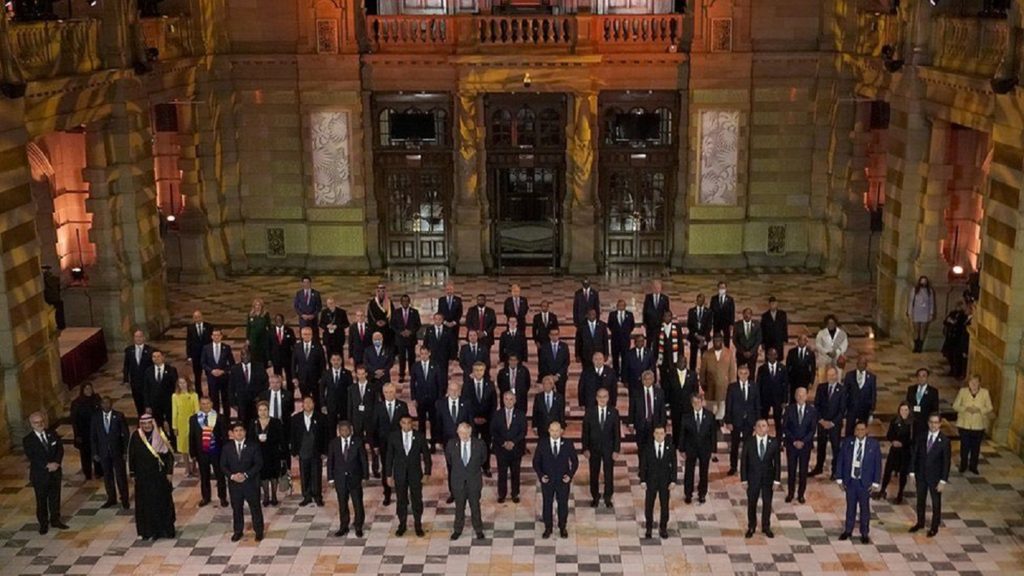When this image of mostly male world leaders gathered at the COP26 climate summit Glasgow started floating around on social media last night, it was a stark reminder of just how far away we are from gender equity on a global scale.
It also feels like a punch in the guts to think that this cohort of overwhelmingly white men will be singularly responsible for the outcomes of COP26, when increased action on climate change and climate justice is as urgent as it’s ever been.
Nearly every world leader at #COP26 is male.
— Joel Scott-Halkes (@Joelscotthalkes) November 2, 2021
The #patriarchy seems abstract until you realise that the future or humanity rests this week almost exclusively in the hands of men. @gailbradbrook #ClimateEmergency pic.twitter.com/bBRQSPvPtu
The lack of women in senior leadership in world climate negotiations is frightening, considering it is women and girls who will suffer most from the many impacts of climate change.
As Angela Priestley wrote earlier this week, it won’t be girls and women determining the future of the planet during the climate talks, but they certainly have the most to lose if politicians fail to act as quickly and ambitiously as required. Indeed, we’re already witnessing how climate-related disasters disproportionately place women and girls at higher risk of forced marriage, sexual exploitation and abuse, and of having their education disrupted.
It’s why feminists from across the world have gathered at the summit, some wearing the colour orange, issuing their demands for the outcomes of COP26.
And today we wear 🔶orange🔶 in our celebration of #feminist leadership for climate action!@WGC_Climate knows that feminist leadership prioritizes collectivity / care & moves away from saviorism/hierarchy & ego.
— Mara Cat Dolan (@MaraDolan1) November 2, 2021
More of it in #climate & #COP26, please!#FeministClimateJustice pic.twitter.com/rA2HPFLzQl
The Women and Gender Constituency has shared their views about what’s needed from world leaders at the summit.
“We share these views in the reality of a world of ever-increasing climate impacts and disasters, where a global pandemic has worked to deepen gross inequities between and within countries and to further exacerbate inequalities and drive millions into greater poverty and instability, especially in the Global South.”
The key demands are:
- Fulfill commitment to human rights in the Paris Agreement & keep 1.5 alive
- Deliver on finance and prioritise loss & damage
- Ensure human rights & ecosystem integrity in Article 6
- Advance the Gender Action Plan
- Reject false solutions & invest in gender-just climate action
- Facilitate gender-just transitions to a regenerative economy
- Invest in resilient, gender-transformative, climate justice education
- Promote health, including sexual and reproductive health and rights
- Ensure rights to water and sanitation in all climate action
- Protect the ocean, cryosphere, coastal ecosystems and local communities
- Ensure collective women’s land rights

